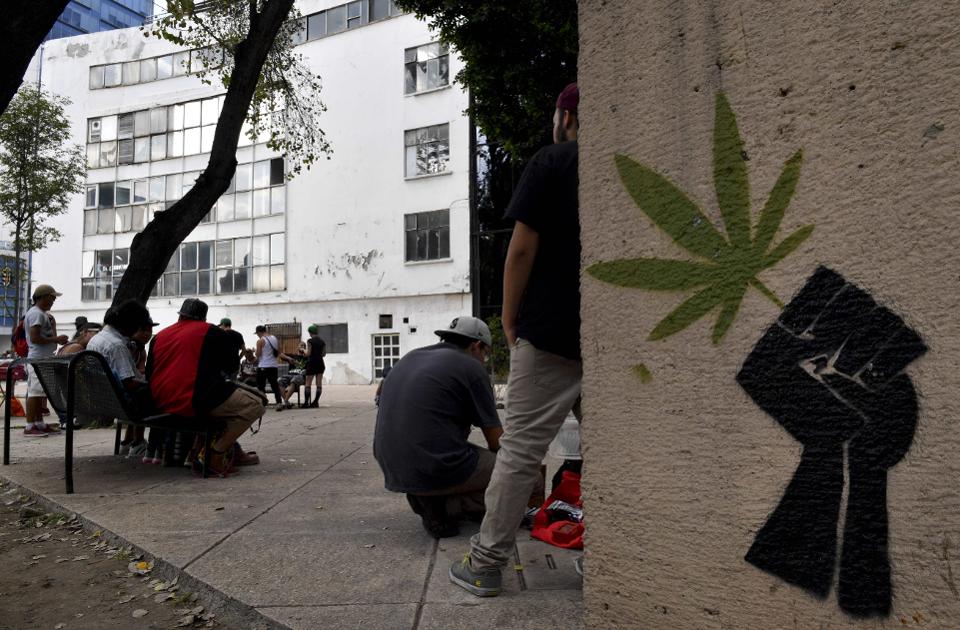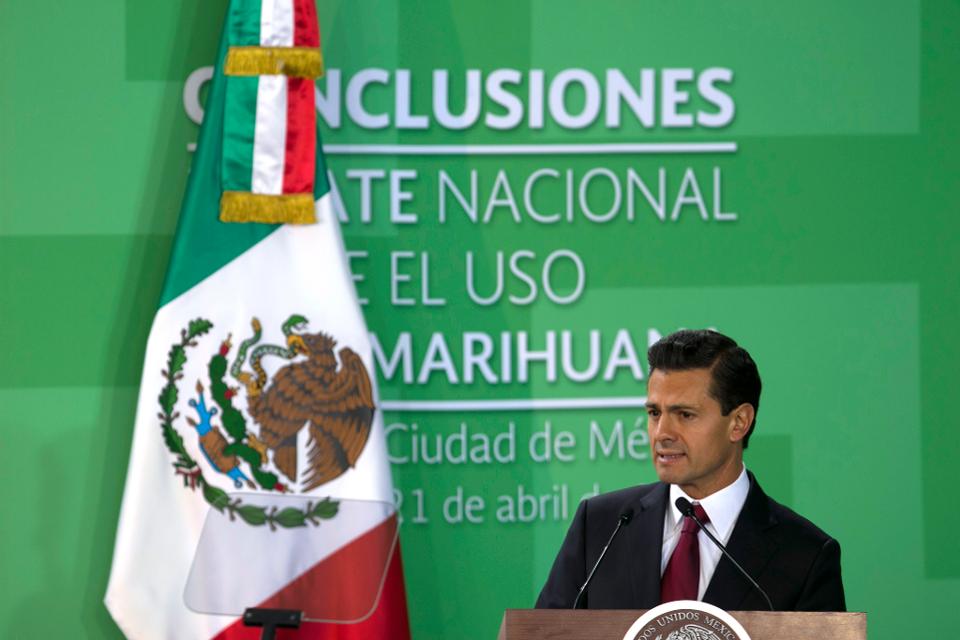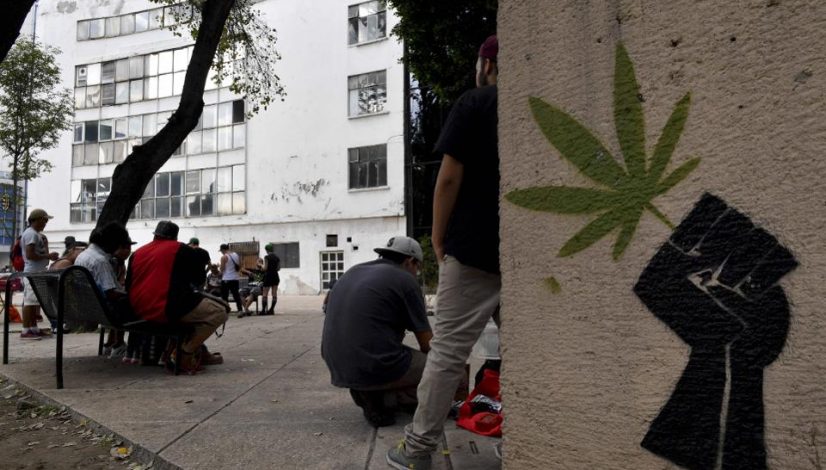Mexico Casually One-Ups U.S. By Legalizing Medicinal Marijuana
This week, Mexican President Enrique PeñaNieto informed the world that his country is taking its relationship with cannabis to the next level.
In an official decree, PeñaNieto publicly confirmed Monday that his government has legalized medicinal cannabis, a.k.a. marijuana, with almost total support from Mexico’s congress and senate. The move marks a significant policy change for the country and the president, which finally came around on cannabis following national discussion and protest.
As the Independent reported, the bill passed with “overwhelming” support in Mexico’s Lower House of Congress in April, with 371 members voting in favor, and just 19 voting against or abstaining. In December, it also blazed through Mexico’s senate, managing 98 in favor and seven against.
See also: Sessions To Congress: Please Forgo Federal Law Protecting Medical Marijuana States
In addition to spreading the news, the decree established that Mexico’s Ministry of Health will be responsible for drafting and implementing “public policies regulating the medicinal use of pharmacological derivatives of cannabis sativa, indica and Americana or marijuana, including tetrahydrocannabinol, its isomers and stereochemical variants, as well as how to regulate the research and national production of them.”
Dr. José Narro Robles, Mexico’s Secretary of Health, praised the legal change online, tweeting out, “I welcome the approval of the therapeutic use of cannabis in Mexico.”

People smoke marijuana during a demonstration in front of Mexican Senate building in Mexico City on September 14, 2016. Dozens of young people marched through different streets of the city to demand the approval of the use of marijuana for medicinal and recreational purposes. / AFP / YURI CORTEZ (Photo credit should read YURI CORTEZ/AFP/Getty Images)
As Leafly reported, Peña Nieto was a “vehement opponent” of legalizing cannabis not too long ago, which is mostly in keeping with years of national policy on the plant. Since a national public debate on the issue in early 2016, however, he has been closely engaged in re-thinking cannabis’ role in Mexican society and worldwide, accompanied by Mexicans’ frequent discussion of it and activism across the country.
In April of 2016, Leafly noted, Peña Nieto commented for the United Nations General Assembly Special Sessions, “So far, the solutions [to control drugs and crime]implemented by the international community have been frankly insufficient [and we]must move beyond prohibition to effective prevention.” That year, he also introduced a bill that ultimately dried up in congress which would have allowed Mexican citizens to possess up to an ounce of cannabis without seeing legal repercussions.
See also: Global Survey Says Magic Mushrooms Are The Safest Recreational Drug

Mexican President Enrique Pena Nieto announces he is sending to Congress a bill to legalize medical marijuana and increase the amount of the drug that can legally be possessed for personal consumption, in Mexico City, on April 21, 2016. (Credit: STR/AFP/Getty Images)
The Mexican president’s carefully considered decision, influenced by his country’s own citizens, seems like it would make good sense for the U.S., too. From a purely economic standpoint, the cost of denying this cheap medicine to patients and enforcing its prohibition within our borders almost certainly exceeds the $7 billion at which today’s U.S. cannabis market is currently valued (mostly thanks to a handful of forward-thinking states).
In fact, taking into account the broader impact that prohibition has on Americans’ quality of life, productivity, incarceration rates, overdose and traffic fatality rates, and so on, it’s easy to imagine that its current overall cost per year already tops the $24 billion which the cannabis industry is expected to net annually by 2025.
Because human suffering, it turns out, is outrageously expensive.
¡Buen trabajo, vecinos!
[h/t Leafly]


